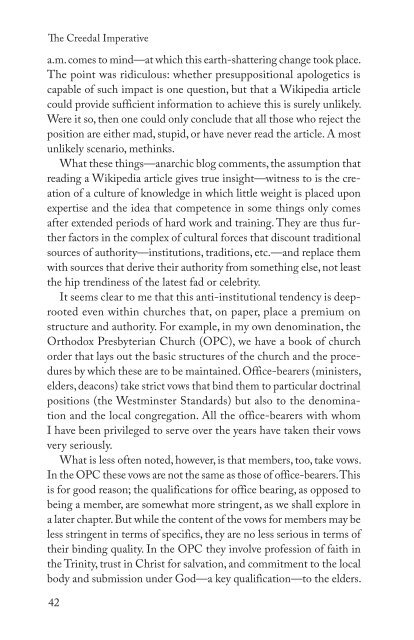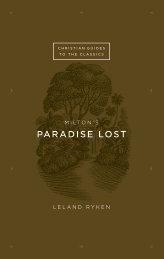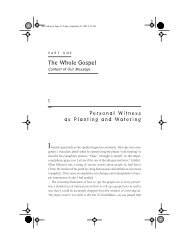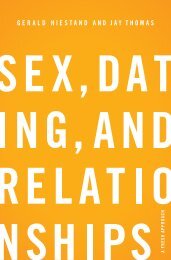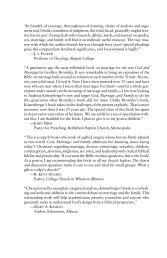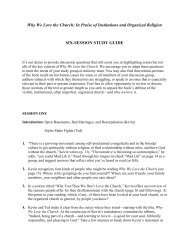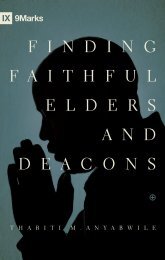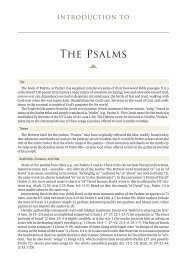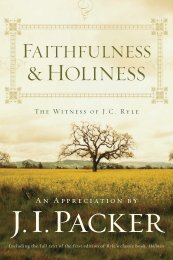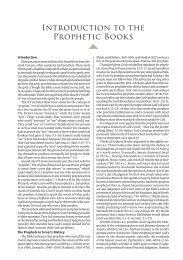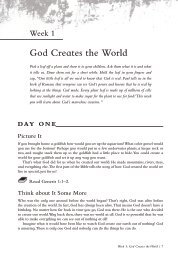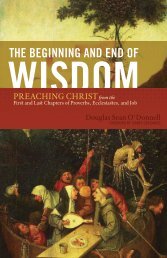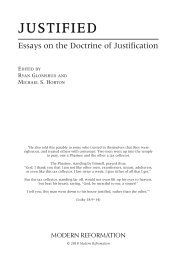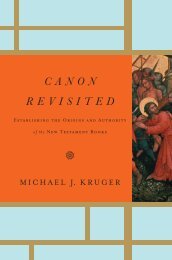The reedal - Monergism Books
The reedal - Monergism Books
The reedal - Monergism Books
You also want an ePaper? Increase the reach of your titles
YUMPU automatically turns print PDFs into web optimized ePapers that Google loves.
<strong>The</strong> C<strong>reedal</strong> Imperativea.m. comes to mind—at which this earth-shattering change took place.<strong>The</strong> point was ridiculous: whether presuppositional apologetics iscapable of such impact is one question, but that a Wikipedia articlecould provide sufficient information to achieve this is surely unlikely.Were it so, then one could only conclude that all those who reject theposition are either mad, stupid, or have never read the article. A mostunlikely scenario, methinks.What these things—anarchic blog comments, the assumption thatreading a Wikipedia article gives true insight—witness to is the creationof a culture of knowledge in which little weight is placed uponexpertise and the idea that competence in some things only comesafter extended periods of hard work and training. <strong>The</strong>y are thus furtherfactors in the complex of cultural forces that discount traditionalsources of authority—institutions, traditions, etc.—and replace themwith sources that derive their authority from something else, not leastthe hip trendiness of the latest fad or celebrity.It seems clear to me that this anti-institutional tendency is deeprootedeven within churches that, on paper, place a premium onstructure and authority. For example, in my own denomination, theOrthodox Presbyterian Church (OPC), we have a book of churchorder that lays out the basic structures of the church and the proceduresby which these are to be maintained. Office-bearers (ministers,elders, deacons) take strict vows that bind them to particular doctrinalpositions (the Westminster Standards) but also to the denominationand the local congregation. All the office-bearers with whomI have been privileged to serve over the years have taken their vowsvery seriously.What is less often noted, however, is that members, too, take vows.In the OPC these vows are not the same as those of office-bearers. Thisis for good reason; the qualifications for office bearing, as opposed tobeing a member, are somewhat more stringent, as we shall explore ina later chapter. But while the content of the vows for members may beless stringent in terms of specifics, they are no less serious in terms oftheir binding quality. In the OPC they involve profession of faith inthe Trinity, trust in Christ for salvation, and commitment to the localbody and submission under God—a key qualification—to the elders.42


